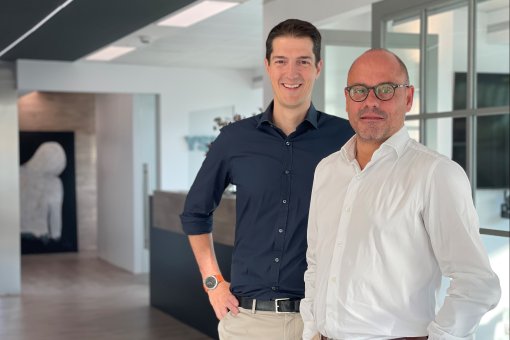Images
Participants


Contact

Catalan biotech Iproteos has won the Expoquimia R+D+I Award in the Biotechnology category for the development of IPR19, a new drug to stop the progression and reverse the cognitive deficits associated with schizophrenia.
The spin-off, founded by two IRB Barcelona scientists leaders in the field of therapeutic peptides, Teresa Tarrago and Ernest Giralt, expect to begin clinical trials of the compound in 2016.
Endowed with € 5,000 in each of their two categories -Biotechnology and Chemistry- the Expoquimia R+D+I Awards were delivered yesterday during the World Chemical Summit Night as part of the Expoquimia Exhibit at the Fair of Barcelona grounds.
The award is an important recognition to the project and the research conducted by the team of Iproteos. Having been chosen as winners in a competition as competitive as this one positions us as one of the most innovative biotechnology companies in Spain. Undoubtedly, the award will allow us to move towards the phase of clinical trials for our drug in the treatment of schizophrenia ", says Teresa Tarrago, CEO of Iproteos.
Nowadays, there are no drugs on the market aimed at treating the cognitive symptoms of schizophrenia. Current available antipsychotic drugs treat positive symptoms (delusions, hallucinations, etc.) and negative symptoms (slurred or difficulty of speech, inappropriate emotions, etc.), while only some drugs, the -so called atypical antipsychotics- can alleviate few aspects of cognitive deficits, but causing serious side effects..
Iproteos IPR019 is the most advanced project of the spin-off. It consists in the development of a last-generation cognitive enhancer that has already demonstrated its efficacy, with very positive results, in animal models of the disease. It has achieved to improve learning and memory abilities affected by schizophrenia, which does not happen with the administration of current available treatments.
Furthermore, its mechanism of action is completely different, meaning that it a 'first in class' drug. It is a third-generation drug, at the interface between those traditionally used and second-generation drugs (protein drugs). It is derived from molecules named peptides that block the action of proteases and that are capable of crossing the blood-brain barrier, a protective system in the brain that, so far, the vast majority of drugs on the market have not been able to cross.
For the development of this type of drugs, Tarragó and Giralt have combined their extensive experience in the research of peptides and proteases using in silico design techniques and the most innovative technologies in peptide synthesis: such as their proprietary IPRO Technology, a combination of computer and biotechnology tools developed by Iproteos itself for the computer modeling of biological processes.
Iproteos, located at the Parc Cientific de Barcelona, is a spin-off that was created based on the transfer of technology developed within the Institute for Research in Biomedicine (IRB Barcelona) and the University of Barcelona, with the strategic participation of the Bosch i Gimpera Foundation. The biotechnology company focuses on the discovery of third-generation drugs for disorders of the central nervous system, and has received financial support from ACCIÓ, the agency for business and enterprise competitiveness of the Generalitat de Catalunya, the Ministry of Economy and Competitiveness, and the Centre for Industrial Technological Development (CDTI).
About IRB Barcelona
The Institute for Research in Biomedicine (IRB Barcelona) pursues a society free of disease. To this end, it conducts multidisciplinary research of excellence to cure cancer and other diseases linked to ageing. It establishes technology transfer agreements with the pharmaceutical industry and major hospitals to bring research results closer to society, and organises a range of science outreach activities to engage the public in an open dialogue. IRB Barcelona is an international centre that hosts 400 researchers and more than 30 nationalities. Recognised as a Severo Ochoa Centre of Excellence since 2011, IRB Barcelona is a CERCA centre and member of the Barcelona Institute of Science and Technology (BIST).




